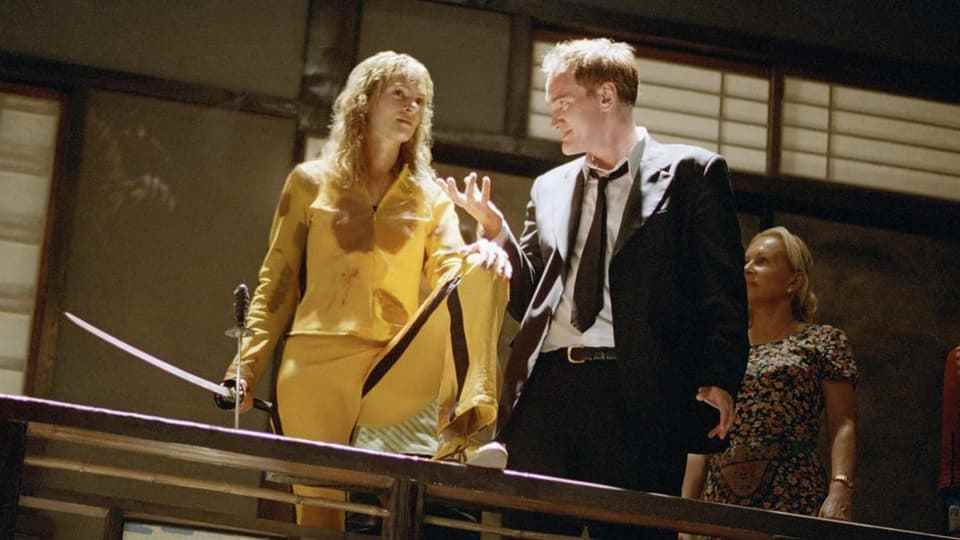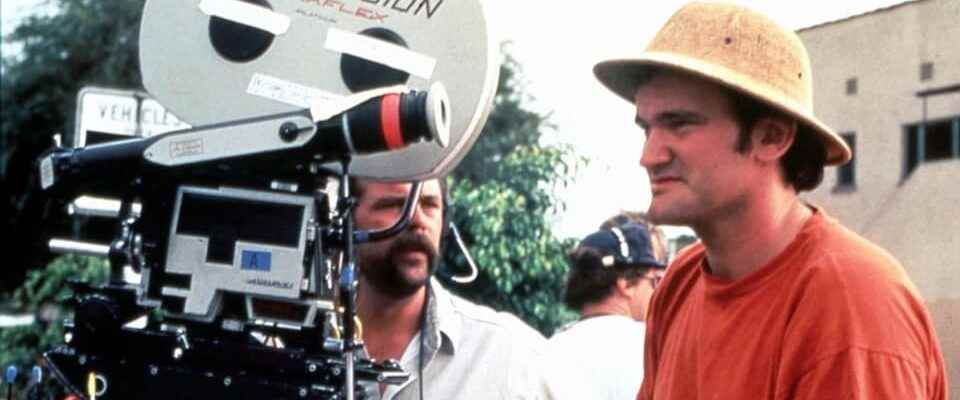contents
In «Cinema Speculation», the «Pulp Fiction» director tells his very personal film story – with many curse words.
Quentin Tarantino acquired his extensive film knowledge as a video store salesman: It’s part of his legend. But little Quentin’s cinematic upbringing began much earlier.
At the age of seven he was allowed to accompany his mother and stepfather to the adult cinema. Violent action films, blaxploitation, late westerns: his mother Connie allowed him everything – except “The Exorcist”, says Tarantino in the first chapter of “Cinema Speculation”.
Legend:
Also has the whole film history in view in his book: Quentin Tarantino in 1994 on the set of his cult film “Pulp Fiction”.
IMAGO/Ronald Grant
And on the US talk shows, where he is currently tirelessly promoting his book, the director emphasizes that he has been wanting to regain this early enthusiasm for cinema ever since with his work for himself and his audience.
Seen everything, read a lot
He has proven that he can do this with his films and with his novel version of «Once Upon a Time in Hollywood». «Cinema Speculation» also drives enthusiasm, but not with the same broad impact.
The book takes us on a wild ride through the cinema, from film to film. Tarantino combines personal memories and historical classification, he builds bridges from masterpieces like Martin Scorsese’s “Taxi Driver” to obscure revenge films that have long been forgotten.
Not only has the man seen just about everything, he’s obviously read an awful lot, and over the course of his meteoric career has met many of the directors and screenwriters whose work he writes about.
Nice in turn
In the foreword he himself explains as a paradox that he whips his book more or less chronologically through the films of the 1970s into the present. This is because he made non-chronological, nested narration popular with his film «Pulp Fiction». Tarantino asks readers to read the book in chapter order.
This is recommended because his arguments, for example on violence in the cinema, are continuously built up over the many examples.
At the same time, it is precisely all these examples that make reading exhausting. This also has to do with the film titles, which may not always be familiar to everyone, even in the original English.
So that the penny drops with the German audience, the German film titles of the time, which were often pretty stupid, are always mentioned in brackets after the original titles in the translation.

Legend:
Muse with a sword: Quentin Tarantino with his favorite actress Uma Thurman while filming “Kill Bill” in 2003.
IMAGO/Cinema Publishers Collection
Damn a lot of bad language
This is not the only problem with Stephan Kleiner’s translation. Because just as films dubbed into German have their problems with the colloquial rudeness of everyday American language, the translation of Tarantino’s text also oscillates between literal rendering and this comic paraphrase, which makes a makeshift “fucking” into “damn” and so always more artificial and coarser at the same time.
Quentin Tarantino’s «Cinema Speculation» is not a book for everyone, it is not a cinema introduction for beginners. But those who embark on the wild ride will be irretrievably swept away by this whirlpool of personal experience and immense film-historical knowledge.
